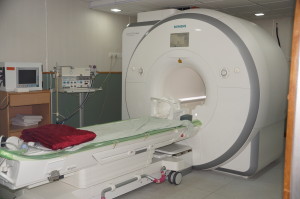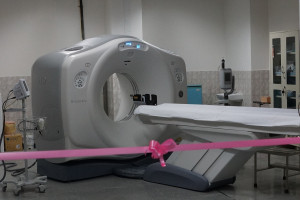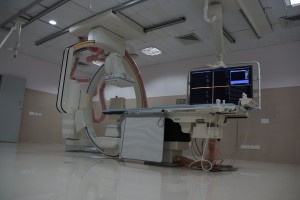B.Sc. in Medical Imaging Technology (MIT)
Offered at: Sri Sathya Sai Institute of Higher Medical Sciences, Whitefield, Bangalore
Affiliated to: Rajiv Gandhi University of Health Sciences (RGUHS), Karnataka
🌟 Course Overview
This program integrates academic learning with hands-on clinical training, preparing students to:
-
Analyze and evaluate imaging techniques
-
Deliver safe and compassionate patient care
-
Operate advanced imaging equipment (X-ray, CT, MRI, etc.)
-
Communicate effectively and work collaboratively in healthcare teams
🎓 Eligibility Criteria
-
Completion of PUC / 12th Grade with Physics, Chemistry, and Biology
-
Must have studied English as a subject
-
Lateral Entry available for diploma holders in the same field (as per RGUHS norms)
-
Age limit: Below 25 years
-
Note: Only female candidates are currently eligible for admission
📆 Course Duration
-
4 years (including 1-year internship)
-
Clinical rotations and real-world hospital exposure included
-
Reduced vacation periods due to extended clinical training
💰 Fees and Expenses
-
Tuition Fee: ₹0 – Fully funded by Sri Sathya Sai Central Trust
-
Students bear: Hostel charges, food, exam fees
💼 Career Opportunities
-
Radiographer in hospitals, diagnostic centers
-
Specializations: CT, MRI, Cathlab
-
Application specialists in companies like GE, Philips, Siemens
-
Roles in education, research, software companies (RIS, PACS)
✅ High demand for trained technologists in India and abroad
🌍 Global Prospects
-
B.Sc. (MIT) is internationally recognized
-
Eligibility to apply abroad (subject to respective country’s registration/licensure norms)
🏥 Clinical Training
-
Conducted at hospitals under the Sri Sathya Sai Central Trust
-
Rotational postings across departments: General X-ray, CT, MRI, Ultrasound, DSA, etc.
-
Shift duties included (day/night) as per training schedule
🧠 Subjects You’ll Study
-
Anatomy & Physiology
-
Radiation Physics
-
Imaging Techniques
-
Radiographic Equipment & Quality Control
-
Pathology
-
Radiographic Procedures & Positioning
-
Radiation Protection & Patient Care
-
RIS/PACS Software Training
📚 Facilities and Learning Resources
-
Modern Classrooms with multimedia support
-
Digital Library with textbooks and journals
-
Online resources
-
Hands-on training in real hospital settings using cutting-edge imaging systems
-
Faculty includes Radiographers, Radiologists, Medical Physicists
❤️ What We Look For in a Student
-
Passion for healthcare and helping people
-
Interest in science and medical technology
-
Strong communication and teamwork skills
-
Good with computers and open to learning new technologies
-
Maturity, empathy, and a caring attitude
💡 Tip: Try to observe a working radiographer in a hospital if possible – it helps you make an informed decision!
❓ Frequently Asked Questions (FAQ)
Q. What is the full name of the course?
A. Bachelor of Science in Medical Imaging Technology – B.Sc. (MIT)
Q. Is the course part-time?
A. No. It is a full-time program.
Q. Are X-rays harmful to health?
A. When used with proper safety measures and equipment, X-rays are safe. Staff are trained in radiation protection and monitored regularly.
Q. Is it easy to get a job after graduation?
A. Yes. Radiographers are in high demand across hospitals and diagnostic centers.
Q. Can I work abroad?
A. Yes. The degree is widely recognized. You may need to clear local licensure exams depending on the country.
📬 How to Apply
Contact the Academic Section:
The Academic Coordinator
Sri Sathya Sai Institute of Higher Medical Sciences
EPIP Area, Whitefield, Bangalore – 560066
📧 Email: registrarblr@sssihms.org.in
📞 Tel: 080-28411500 (Ext: 415)
🏆 Special Highlights @ SSSIHMS
-
Free education as Seva (selfless service) to society
-
Training on cutting-edge equipment
-
Emphasis on values, ethics, and holistic development
-
Integrated learning with other paramedical disciplines
-
Advanced Radiology Information Systems and PACS exposure
-
A blend of technology and compassion in patient care
💬 Student Intake
-
Only 3–5 students per year, ensuring personalized training and mentorship
If you are a compassionate, committed individual with a passion for healthcare, science, and service — this course is for you.
“With skill in your hands and love in your heart, you can light up lives from within.”



